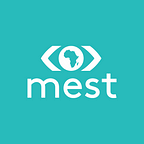Working Remotely During COVID-19: From the Perspective of the Managing Director
This post was written by MEST’s Managing Director, Ashwin Ravichandran.
As of April 30th, 2020, there have been 2,074 confirmed COVID-19 cases in Ghana with 16 deaths, and 188 recoveries. Kenya confirmed twelve new cases bringing its total confirmed number to 396 cases, Nigeria has passed the 1,000 cases threshold and is now at 1,932 confirmed cases, and South Africa is embarking on a Level 4 alert today as it has recorded 5,350 cases in total. After the three-week imposed restrictions on movement, the government of Ghana lifted the ban on restrictions on April 26th, 2020, and country officials across the continent are discussing when to do the same. This has given the opportunity for businesses, organizations, and individuals to resume commercial activities so that they can be able to cater for their families and hopefully, move closer back to ‘normal.’
However, while the effort to stay safe and healthy is the most crucial of needs, unfortunately, across Africa the numbers of COVID-19 cases keep rising. Organizations around the world from Google to Apple, like MEST, are still working remotely in the effort to stay at home, keep safe, and flatten the curve.
MEST’s headquarters in Ghana set an organization-wide lockdown from March 15th in the effort to stay ahead of the global pandemic. With MEST as an organization directly managing a community of 120 members and indirectly managing a community of 400+ members, working remotely has undoubtedly come with some significant changes.
Today, May 1st, marks 45 days of remote work for the MEST Community, and I would like to thank each member of MEST staff who has worked tirelessly to support MEST’s mission of training, mentoring, and funding the next generation of world-class software entrepreneurs from Africa.
Like many others, MEST was not set up to be a remote organization. In fact, we are an organization that thrives off of day-to-day interactions, in-person events, and energy at each of our hubs that can only be described as vibrant. Each of the past 45 days has brought about new learnings. As I have been reflecting, below are a few of my thoughts for leaders in similarly foreign waters:
- Forward plan and still make decisions for the future — Work on making sure that the organization starts to plan how to get back to the new normal which COVID-19 has given us until this blows over. At MEST, we created a crisis management document that outlines mild, medium, and severe scenarios, and have regular COVID-19 related update calls with heads of all departments. While we may not follow every contingency plan to a T — The entire organization feels better prepared knowing that it is there as we adapt along the way.
- Be flexible, and prioritize — This crisis has interrupted plans that have been in the works for months, which is both frustrating and disappointing, but also poses a unique opportunity to introduce exciting new work. The need for adaptability is more important than ever. Evaluate the need for current projects, design more relevant, current projects, and remove old projects that can wait or no longer stand.
- Streamline for sustainability — It is important to make sure your impact is still lasting during these times. At MEST, we have reopened all of our budgets and prioritized need-to-have vs nice-to-haves in this time — including ‘COVID-19 costs’ such as bigger Zoom memberships and more digital platforms as MEST moves most of its community offerings and resources online. As we have introduced a weekly webinar series and more relevant long-form content, we aim to continue to collaborate and support the greater MEST network from home.
- Be centrally empathetic — Keep in mind that each employee’s situation is different. In our case, the MEST team is dispersed, working from different environments, with different work-from-home resources, and even from different time zones. Management of unique circumstances requires immense patience and understanding, which can sometimes be difficult while still maintaining high standards of work and productivity. When in doubt, choose empathy.
- Celebrate your staff — This is a time when you need to celebrate your staff! Each one of them is in a difficult position, and you can assume that your staff is each doing their best to balance personal and professional needs and responsibilities. A little positive affirmation, encouragement, and celebration go a long way to keep morale and motivation up across the organization. If you have them, be especially mindful to ensure your support staff — kitchen team, security guards, drivers, and cleaners — feel supported and appreciated.
Now, how long will these changes stay in effect? Is COVID-19 the new normal? What is going to happen next? Often as a leader, you want to have answers for your team. This is one of those generation-defining moments where none of us really know what is next, and while I certainly hope we will all be in the same room sometime soon, it is not something I can promise. It’s alright to say you don’t know, you can’t promise the future.
On this, I would like to make a special note to my fellow leaders in the current soup as I am — We are human, too. Please take care of yourself, your family, your team and the organization will follow your lead, and we will all be stronger for it. Now is not the time to stop; let’s hold strong, and see you all on the other side. This too shall pass.
